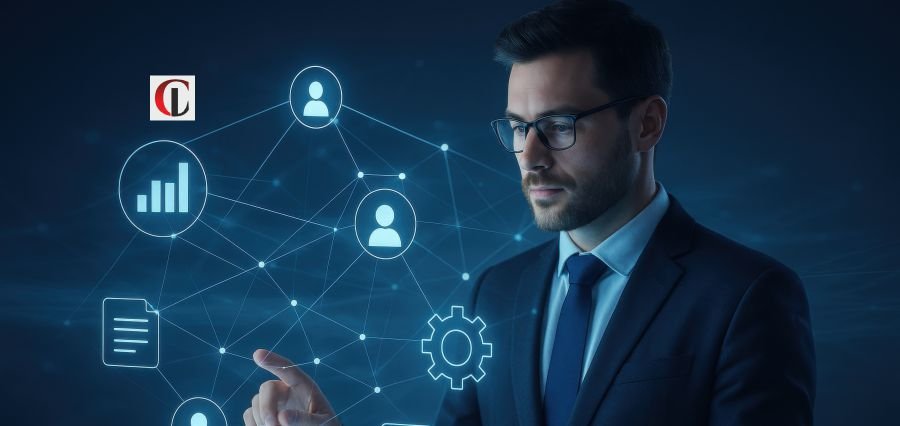The dynamic nature of the technology world has transformed the role of the IT leader in the contemporary organization. Current IT leaders are now required to make contributions to the innovation process and enable digital transformation and use the technology initiatives to yield business results. Effective IT leadership integrates technical ability, business acumen, and interpersonal skills that together help companies maintain competitiveness in an accelerating-digital world. Good IT leaders are not just attentive to the undertones of new technology, but have the ability to put it into words that reflect measurable business value. Their leadership does not concern system performance or cybersecurity strategy but rather the creation of an innovative, collaborative, and trusting stakeholder environment. By showcasing most critical skills like vision, agility, and effective communication, these managers bridge the technology-business gap and leverage IT as a growth engine, rather than a cost center.
Vision and Strategic Thinking
It is a question of magic of imagination, having the vision to comprehend how technology can revolutionize business models, improve customer experience, and obliterate cost. Visionary leaders possess vision, through forward thinking, through foresight, in being able to think forward into the market scenario and tech disruption, and guide their companies forward of the curve. They replace a short-term, problem-oriented thinking process to a long-term thinking process formulating a strategy that better aligns IT programs with overall business goals. This vision forward has IT investments generating measurable payback and informing organizational objectives.
There is a need for strategic thinking too. Exceptional IT leaders balance risks against each other, stability against innovation, and make informed decisions. They foster an environment of experimentation with a culture of safety but governance frameworks keep people on their toes and offer security. By maintaining good minds and putting IT objectives in line with the firm’s greater good, executives establish trust with executives, investors, and workers. Strategic thinking on their part allows organizations to leverage technology as a force for business transformation instead of a line-of-business competency.
Flexibility and Resilience
Technology horizons change at a pace that requires IT leaders to change to change at speed. New technologies, platforms, and architectures like cloud computing, artificial intelligence, and cyber-attacks call for leaders who can shift strategy at short notice with minimal disruption. Flexibility allows IT leaders to cope with unprecedented adversity in a rapidly changing environment either due to technological obsolescence, financial crisis, or corporate transformation. Changing and leading change, leaders provide the culture of development of the company and view challenges as an impetus for innovation.
Resilience supports flexibility because it allows leaders to operate with failure without compromising long-term vision. Remaining cool in crisis, learning from failing, and leading teams in a state of uncertainty are essential. Effective IT leaders do not view challenges as impossible walls but stepping stones to greatness. They invest in developing shock-absorbing staffs and workers who will deliver under stress, round-the-clock service access, and trust with stakeholders. Through resilience, IT executives demonstrate that determination and stability are as important as technical expertise to achieve long-term success.
Communication and People-Focused Leadership
The most critical aspect of leadership lies in strong people skills, encompassing effective communication and interpersonal abilities. IT leaders must be able to convey the technical details of the business into a non-technical language that can be perceived by the non-technical stakeholders such as the executives, the board members, and the customers. Communication success is the key to winning technology project acceptance, cross-functional group alignment, and setting expectations. By establishing transparency and communications, leaders become credible and make IT a business growth partner and not a business silo.
Effective IT leaders know that their best strength is not in technology, but in the people, who create, deploy, and maintain it. They value highly mentoring, talent management, and developing diverse, teamwork-oriented, and innovation-focused work cultures. IT executives can develop high-performing and committed teams by empowering their people, valuing them and providing training. People-first leadership generates loyalty, reduces turnover and facilitates a climate in which innovation can flourish. The person-focused ideology will see to it that the driving forces of technological progress are in the hands of inspired and motivated individuals.
Conclusion
In today’s technology-driven environment, the responsibilities of IT leaders have expanded significantly, requiring vision, adaptability, resilience, and strong communication. Technical competence is still the core, but it is the ability to establish a line between business strategy and technology, and to lead others, that differentiates great leaders from others. Today’s organizations seek not only operational effectiveness from IT leadership, but also the wisdom to create tech revolutions and capture digital opportunity. Gaining the important attributes of agility, resilience, and people leadership under strategic vision, IT leaders set their organisations up for success in ever-escalating change speed. Their influence is felt far beyond the IT organisation to set culture, competitiveness, and enterprise-readiness. As technology continues to shape the industries it competes in, effective IT leadership will increasingly require more, and these characteristics become absolutely necessary for individuals who want to establish lasting success.
Read also : Dimosthenis Atteia: Leading the Digital Frontier of Food Security and Cyber Defense

